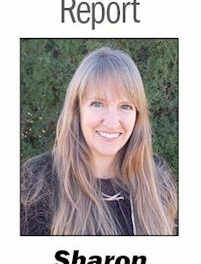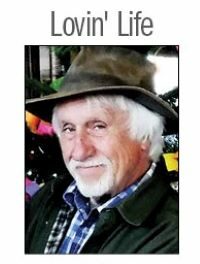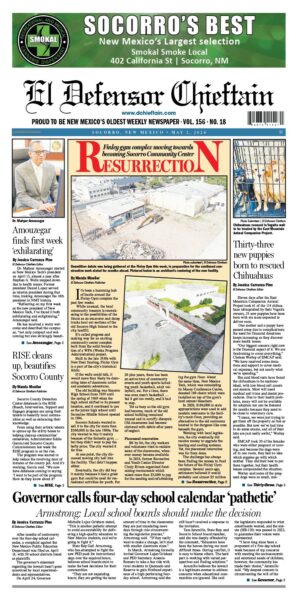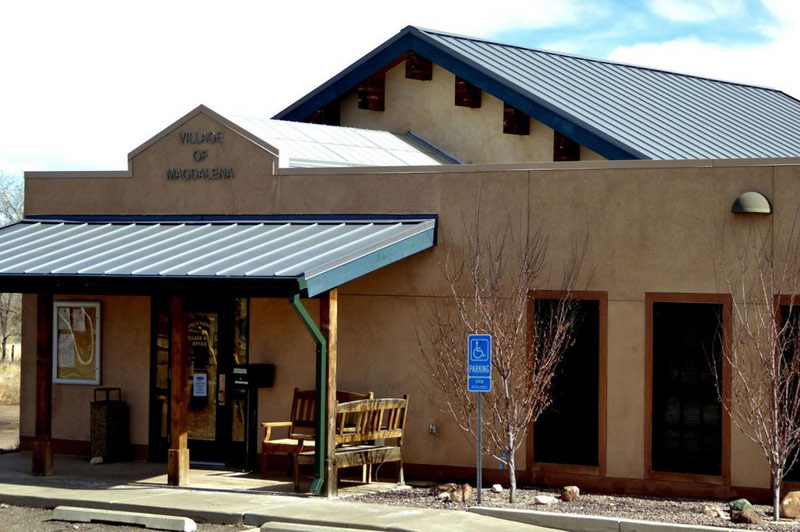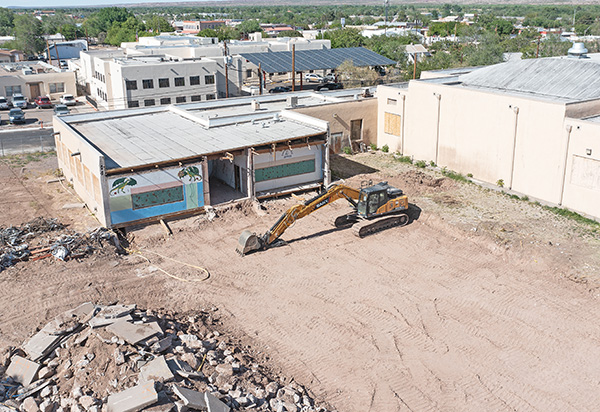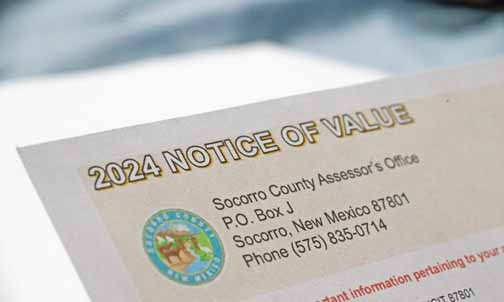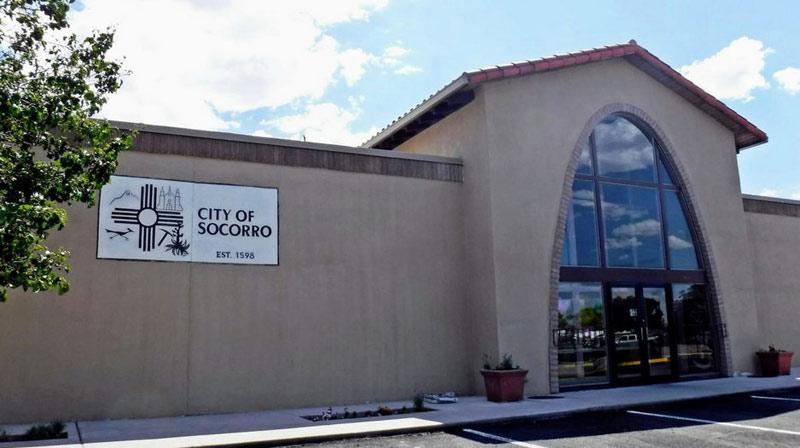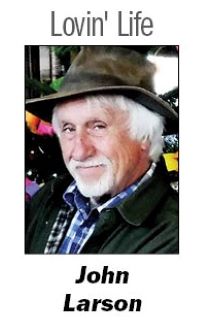
Never mind.
After writing about the Trinity test last week, I happened to remember a fellow passing through Socorro a few years ago and dropping by the newspaper office looking for his grandfather. Not literally but figuratively.
I forget his name, but he wanted to leaf through our archival issues of the Chieftain, specifically from the 1940s, when he said his grandfather, a Mr. Dabney, was editor-publisher of this newspaper.
I don’t know if you’ve checked them out, but thousands of past issues of the Chieftain are bound together in big volumes that go back as far as 1937, and if you know how to operate a microfiche reader, you’re in luck. Older ones have been preserved on microfilm, also stored at the office. There’s a lot of Socorro history there, and I’m talking about going back to the very first issue in May 1884.
Getting back to Phil and his grandfather, he found that Thomas Ewing Dabney was indeed the Chieftain editor in 1945. And that includes the fateful week of the world’s first nuclear blast.
You know the story. It was July 16, 1945, a Monday. While Socorro County slept, the assembled scientists at the former McDonald Ranch house were putting on their welder’s goggles and passing around suntan lotion while Enrico Fermi was taking bets on whether the atmosphere would ignite and destroy just the state of New Mexico, or perhaps the entire planet.
The Chieftain reported the explosion on its next issue’s front page in a brief 156-word story under the headline:
SOCORRO LIGHTED AND SHAKEN WHEN ALAMOGORDO MAGAZINE EXPLODES – NO ONE INJURED.
The article goes on to say:
“An explosives magazine at the Alamogordo air base blew up Monday morning, and the flash, sound and and [sic] shock were seen, heard, and felt in Socorro, more than 100 miles away, as well as Magdalena, Datil and Reserve.
“The Associated Press said the explosion rattled windows in Gallup, 235 miles away.
“The time was 5:35 a.m. according to Mrs. Leona Cope who looked at a clock when she saw the flash. The sound did not reach her until several minutes had passed.
“The flash was intensely white and seemed to fill the entire world. It was followed by a large crimson glow. The flash lasted only a second or so. It was so bright that Miss Georgia Green of Socorro, blind student at the University of New Mexico, being driven to Albuquerque by her brother-in-law, Lieutenant Joe Wills, asked, “What’s that?”
“No one was injured by the explosion. Cause of the explosion is not indicated.”
And that was all that was said about it. But now we know it wasn’t an ammo dump. The thing is, as editor of the Chieftain, all Mr. Dabney had to go on was what the government told him.
Like I say, there’s a lot of history in those old issues, and when you think about it, in the future, people will be reading what you’re reading in The Chieftain this week. And last week. And next week. It just occurred to me that people in the far-flung future can even be reading the little musings in this column, which … is a scary thought.
I’m thinking that if (or when!) the grid goes out and every digital article on the internet is no longer retrievable, all we’ll have to look up past articles are the bound volumes of the newspaper. I mean, ahem, the news “paper.”
While we’re waxing nostalgic, maybe we should bring back the bicycle-riding paperboys, too, like when I was 14 and flinging the Paducah Sun-Democrat onto doorsteps and into the bushes around the neighborhood. If I recall, my weekly earnings for delivering the daily newspaper was around $8, which was enough to buy the newest record by The Beatles and go to the movies. And still have enough for a hotdog and coke at the corner drugstore.
But I digress.
Anyway, even though the Chieftain got it wrong in reporting on the Trinity A-bomb test, it was all Mr. Dabney knew and all he was told. I mean, fact-checking during wartime was nigh near impossible.
When it comes to reporting local news and getting it right, I’m reminded of Oscar Wilde, writing about a sign he saw in a Leadville, Colorado casino in the 1880s: “Please don’t shoot the piano player. He is doing his best.”

